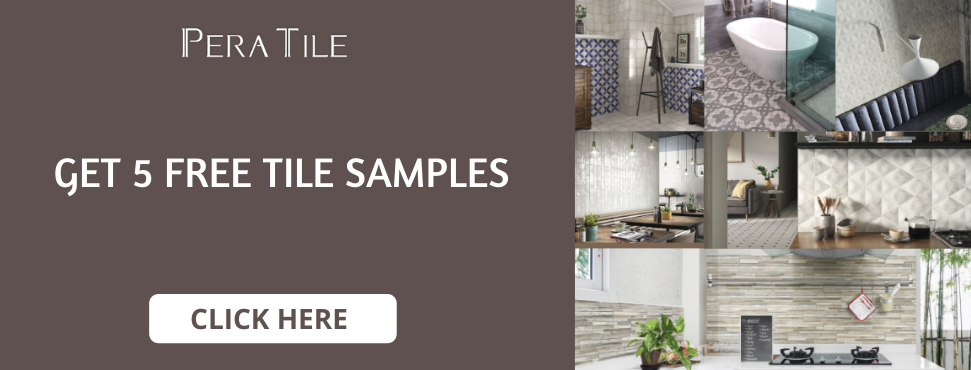When it comes to your client’s home, they want nothing but the best, and deciding between porcelain tile and natural stone is something that many designers, builders, and contractors struggle with.
While each material has its distinct benefits and drawbacks, craftsmen have been working with natural stone for centuries, and the material possess a place of elegance, durability, and reliability throughout human history. Read on to learn more.
Advantages of Natural Stone Tile
People have been using natural stone to make spaces beautiful for thousands of years, and it’s no different today. While the variations of natural stone available may be shocking, there’s no doubt that this unique material possess several distinct benefits that your clients will love. Here are some of the top:
- Every piece of natural stone is unique.Natural stone is truly timeless. When you work with natural stone, you never have to worry about the flooring you install in a client’s project being a duplicate of anyone else’s : Every single piece is one-of-a-kind. Variations in shade, color, density, and texture make stone a very unique and specific material, and clients who want a truly stand-out material will love it. Just like diamonds, each piece of stone has its own clarity, coloring, balance, and beauty that contributes to a truly unique appearance
- Natural stone tile can be refinished.Over time, even the highest-quality flooring gets scratched and tarnished. With natural stone, though, this is an easily repairable issue. Natural stone is easy to clean and can be refinished if it gets scratched or scuffed. This results in a beautiful, fresh-looking floor that will truly last a lifetime.
- Natural stone is customizable. Regardless of what finish, size, or thickness you want in your tile, natural stone can deliver. With the help of a skilled craftsman, it’s easy to customize natural stone to cater to various architectural elements, such as baluster and stair nosing; and various textures. This allows you to create unique and one-of-a-kind stone elements for your clients.
- Natural stone tile ages beautifully. To understand how stone ages, you need only look at ancient buildings like the Parthenon or the Dhamek Stupa. Among the oldest buildings in the world, these ancient temples are crafted from stone that dates back thousands of years. Despite their age, though, these buildings are still among the most beautiful in the world. Regardless of elements, wear, and time, stone ages wonderfully and, even centuries after its installation, looks unique and high-quality. Marble and limestone have been used in traditional architecture for thousands of years, and they remain popular in the residential market today. Clients who value timeless materials will love this about natural stone.
The benefits of natural stone are numerous. While porcelain attempts to mimic natural stone, it fails to achieve the natural beauty inherent within natural stone.
The Advantages of Porcelain
For designers, builders, and architects who need a durable, high-quality material for upcoming projects, porcelain does present many benefits. Some of the most prominent are as follows:
- The color range of porcelain is easily controlled. Since porcelain is man-made, its color can be adjusted easily and completely. This is ideal for designers who want a very specific hue for use in interior decoration. Because porcelain’s manufacturing process offers an unlimited potential for design, it’s become a very popular material in the residential home design market.
- Porcelain is moisture-resistant. Porcelain is a moisture-resistant material, which makes it a popular tile choice for high-moisture areas like bathrooms and commercial or domestic kitchens.
- Porcelain is frost-resistant. Frost can be damaging to tile, and many residential and commercial clients want to limit the damage cold conditions have on their tile. Luckily, true porcelain is frost-resistant and will stand up to chilly temperatures in your client’s space without damage.
- Porcelain is chemical-resistant. Built to be durable and tougher than many other types of tile, porcelain resists the damaging and stripping effects of chemicals, which makes it a wise choice for kitchen and bathroom floors and countertops, where chemical cleaners are often used.
- Porcelain resists scratches, stains, and etching. In areas of high use, porcelain will stay beautiful and new-looking. Because the material resists all manner of stains, etching, and scratches, it stands up to even the hardest wear and tear.
Porcelain vs. Natural Stone: Which is Right for Your Project?
While both porcelain and natural stone have their benefits, discerning professionals often choose to work with natural stone for custom projects. Used for centuries in the construction of temples, meeting places, high-end homes and palaces around the world, natural stone offers the durability, beauty, and longevity discerning professionals demand from the spaces they create.
While working with natural stone tile requires expertise, Pera Tile specializes in natural stone and can help you find the natural stone you need for multiple projects and installations, ranging from commercial buildings to custom homes and renovations.
At Pera Tile, we have an extensive portfolio of natural stone tile ranging from Basalt to Marble, Travertine to Limestone, and dozens of additional stone options from around the world. We recently also added a line of
Porcelain Pavers and Pool Copings.
Contact Pera Tile today to learn more about our selection and to find your perfect wholesale stone or porcelain now.


